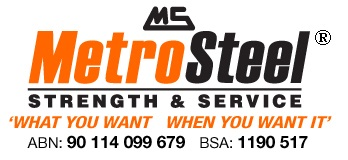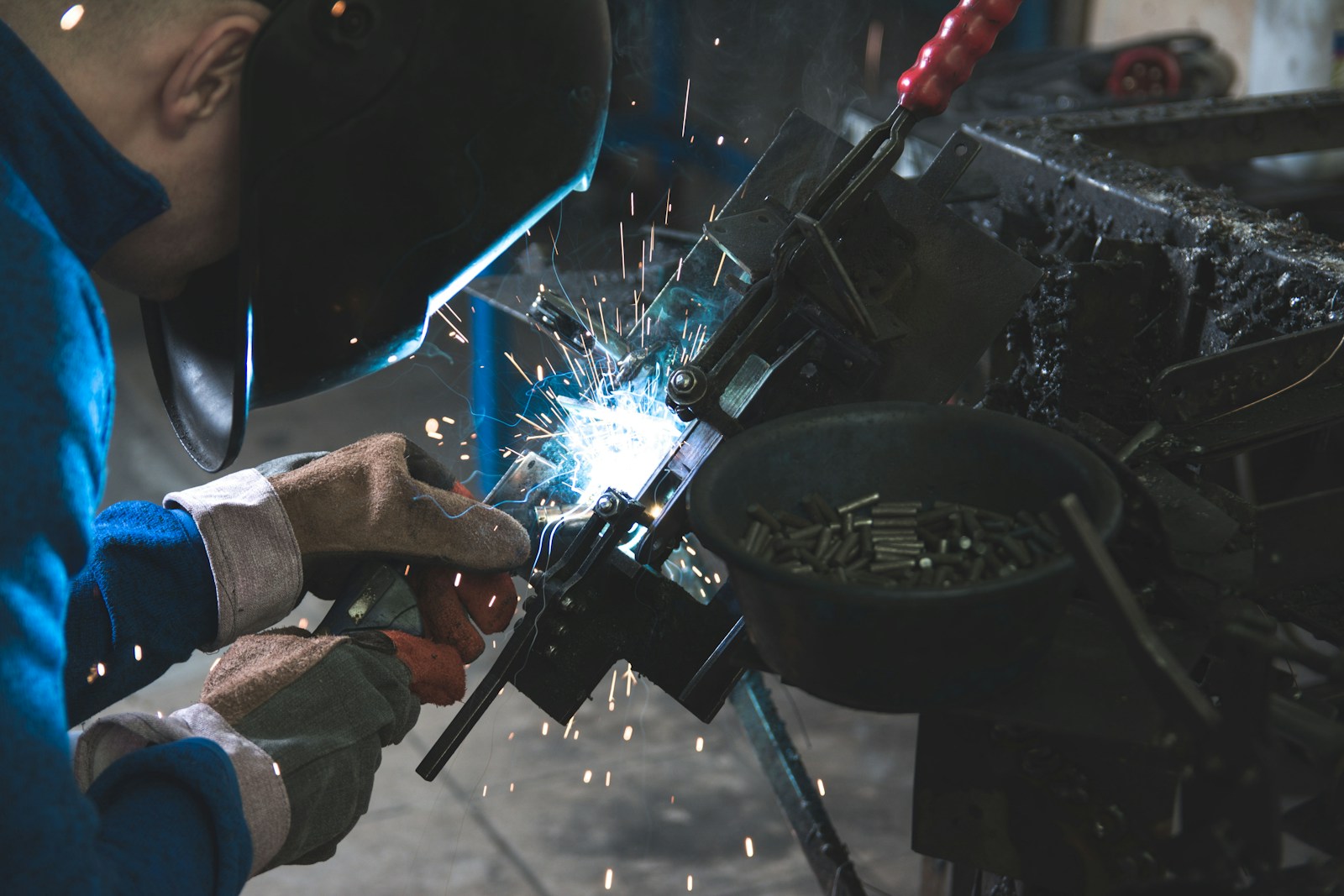When embarking on a fabrication project, the term fabrication refers to the process of cutting, shaping, and assembling materials into a finished product. The right metal signifies the specific material that meets your project’s technical, environmental, and budgetary requirements. The decision-making process involves assessing factors like strength, durability, corrosion resistance, and cost. In short, choosing the right metal is about ensuring your project achieves optimal performance, longevity, and value. This blog will explore the critical considerations to help you make informed choices, whether your focus is structural stability, intricate design, or environmental resilience. At Metro Steel, we understand how overwhelming this decision can be, especially with the array of options available. That’s why we’re here to guide you through the key factors you should consider when choosing the right metal for your fabrication needs.
The Importance of Selecting the Right Metal
Choosing the appropriate metal can significantly impact the success of your project. Every material has its own strengths and limitations and selecting the wrong one can lead to poor performance, unnecessary costs and even potential safety hazards. For example, a metal that isn’t corrosion-resistant might lead to early degradation if used in outdoor applications. We are experts in helping you make informed choices. With our extensive range of high-quality metals and deep understanding of fabrication techniques, we can ensure that your project is built to last, using the most suitable material for the job.
Understanding Your Project Requirements
Define Your Project’s Purpose
The first step in choosing the right metal is understanding the specific requirements of your project. Ask yourself, what is the end-use of the fabricated product? For instance, if the metal will be used for structural purposes, it needs to withstand considerable mechanical stresses. Will it be exposed to outdoor elements, or perhaps it needs to handle high temperatures? Consider whether the product will need to endure heavy loads or extreme environments.
By defining your project’s purpose, you’ll be able to match it with a metal that has the appropriate mechanical and chemical properties. The more specific you can be about your needs, the easier it will be to choose the right material.
Mechanical Properties to Consider
Strength and Durability
When considering which metal to use, strength is one of the top priorities. Metals such as steel offer high tensile strength, making them perfect for structural applications. Durability is equally important—choosing a material that will last under expected stress and conditions can reduce maintenance and repair costs down the line.
Flexibility and Malleability
Some projects require metals that are more flexible or malleable. This refers to the metal’s ability to be shaped or bent without breaking. Materials like aluminium are highly malleable, making them ideal for applications that require complex shapes or detailed customisation. Consider the forming processes you’ll need—some metals are easier to manipulate than others, which can influence the fabrication process and the final product’s quality.
Corrosion Resistance
For projects exposed to harsh environments, choosing a corrosion-resistant metal is essential. Stainless steel, for instance, is an excellent option for environments prone to moisture or chemicals, as it resists rust and corrosion effectively. Using a material with poor corrosion resistance could mean costly repairs or replacements in the future.
Environmental and Operational Factors
Operating Temperatures
The operating environment, particularly in terms of temperature, plays a crucial role in determining the right metal. Some metals, like steel, can withstand extreme high temperatures, making them ideal for high-heat applications such as engines or industrial machinery. On the other hand, materials like copper are better suited for low-temperature applications due to their excellent electrical conductivity and thermal properties.
Exposure to Elements
When metals are exposed to the elements—be it moisture, chemicals, or UV radiation—they can degrade if they aren’t suited for such conditions. Choosing a metal like stainless steel or aluminium, which offers high resistance to these elements, ensures that your fabricated product will last longer in outdoor or chemically exposed environments.
Cost and Availability
Budget Considerations
While the performance of the material is critical, cost is always a consideration. Higher-quality metals such as stainless steel or specific alloys might offer superior performance but come with a higher price tag. It’s essential to balance the cost of the material with your project’s budget without compromising on key performance characteristics. Keep in mind that cheaper materials might lead to higher long-term costs due to frequent repairs or replacements.
Material Availability
Another practical factor is the availability of the metal. Some metals may have longer lead times due to sourcing challenges. Ensuring that the material you choose is readily available can help prevent delays in your project. We maintain a robust inventory of a wide range of metals, ensuring that you get what you need when you need it.
Fabrication Process Compatibility
Ease of Fabrication
Some metals are easier to work with than others, depending on the processes involved. For example, aluminium is relatively easy to cut, weld and machine, making it a cost-effective choice for many projects. On the other hand, materials like stainless steel may require more advanced tools and expertise, which could increase the cost and time of the project.
Equipment and Expertise Required
Different metals require specific tools and expertise for fabrication. Not all workshops are equipped to handle certain materials and specialised skills may be needed for precise cutting, welding, or forming. Our state-of-the-art equipment and experienced fabricators ensure that we can work with a broad range of metals to meet your project’s exact specifications.
Compliance with Standards and Regulations
Industry Standards
It’s crucial to ensure that the materials used in your project meet industry standards, both in terms of quality and safety. Compliance with British and Australian standards ensures that your project will not only perform well but also adhere to regulatory requirements, preventing legal or safety issues down the line.
Safety and Certification
Choosing a metal that meets safety and certification standards is essential, particularly for industries such as construction, automotive, or food processing, where material failure can have significant consequences. Metro Steel works with certified materials to ensure that your project meets all relevant safety and performance criteria.
Making the Right Choice with Metro Steel
Choosing the right metal for your fabrication needs can feel like a daunting task, but with the expertise and extensive metal selection offered at Metro Steel, you don’t have to navigate this process alone. Our commitment to quality, coupled with our dedication to customer support, means we’ll help you find the perfect solution for your project’s specific requirements. Whether you’re looking for the strength of steel or the corrosion resistance of aluminium, we’re here to guide you through the decision-making process.
Get in touch today to discuss your project’s needs with one of our experts and let Metro Steel help you make the best choice for long-lasting success!
 Working Hours - Mon – Fri 7:00 AM – 4:00 PM
Working Hours - Mon – Fri 7:00 AM – 4:00 PM Talk to an Expert (07) 3204 1000
Talk to an Expert (07) 3204 1000
